| 1. |
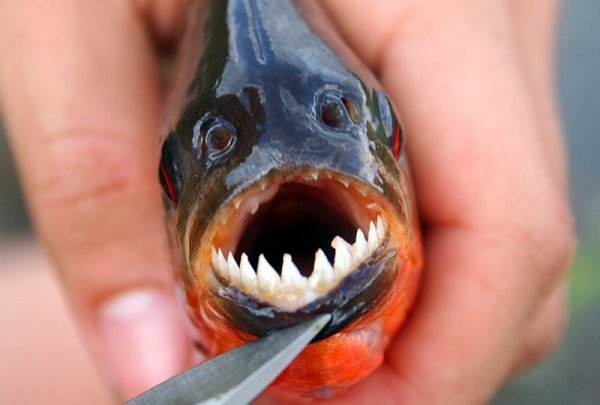 piranha
piranha
While the threat this little teeth-with-gills poses to humans has been rather blown up in films – including its own self-titled horror B movie – the Piranha has a set of jaws to make any dentist nod with nervous approval. Its rows of razor-sharp gnashers are tightly packed and interlock with each other, teeth perfectly designed for the rapid piercing and shearing of meat – for which the Piranha has a rapacious appetite, as if you needed to know. The Piranha is also aggressive to its own kind and can become cannibalistic if underfed.
|
|
| 2. |
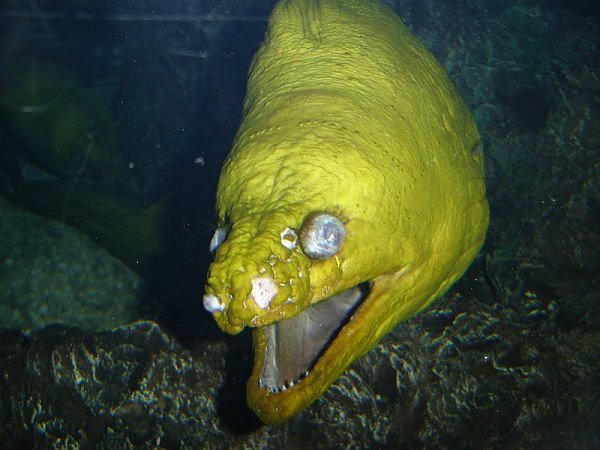 moray eel
moray eel
Found all over the world skulking in reef crevices – where it waits for prey to pass by near enough for it to lunge at and seize in its powerful jaws – the Moray Eel is a fish best steered clear of. This fearsome carnivore feeds on sea-dwelling creatures, but can also inflict severe injuries on people that get too close for comfort. Apparently the Moray is more often aloof than ill tempered, and will only attack humans in self-defence or bite hands by mistake if fed. When disturbed, however, it is vicious- and the bacteria coating its sharp backward-pointing teeth can infect wounds, making for an extra beastly bite. The toxic potential doesn’t stop there either, with the mucus secreted over the skin containing a toxin in some species.
|
|
| 3. |
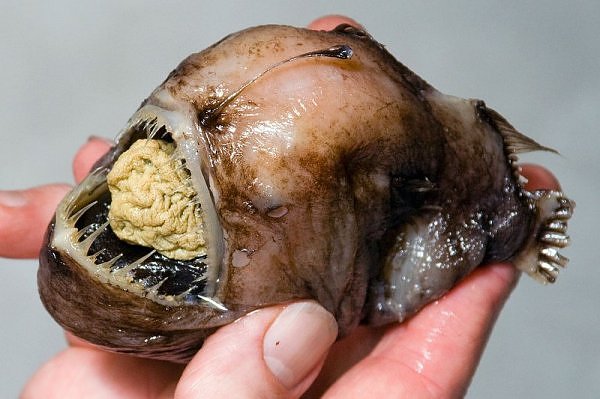 tiny deep-sea anglerfish
tiny deep-sea anglerfish
It’s probably a good thing for us that this fiend, also known as the sea devil, is found at depths of 3,300-6,600 ft. As far as we're concerned, it can stay there.
|
|
| 4. |
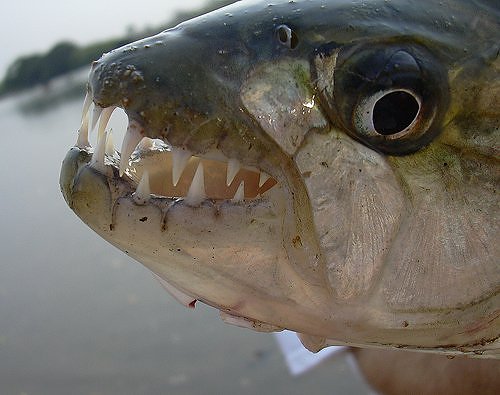 tigerfish
tigerfish
No prizes for guessing some of the reasons the Tigerfish got its name. With a gaping maw made up of an extremely well developed mouth with protruding teeth, this definitely isn’t the kind of fish you’d like to meet in a dark corner of the river. The Tigerfish is just as ferocious as it looks – fiercely territorial and known for being a voracious predator.
|
|
| 5. |
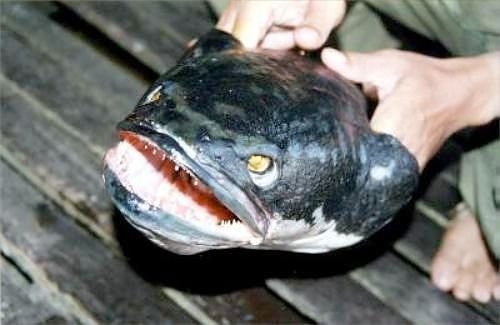 snakehead
snakehead
Previously introduced in these columns when it was reported to have invaded Britain, the Snakehead fish can be one mean mother – quite literally as it’s thought to have attacked humans who have gone too close to its young. Widely distributed across South East Asia, parts of India and Africa, the giant tropical specimen boasts a fat mouth and sharp pointed teeth, and will eat just about everything in or on a body of water, be it fish, bird, amphibian or mammal.
|
|